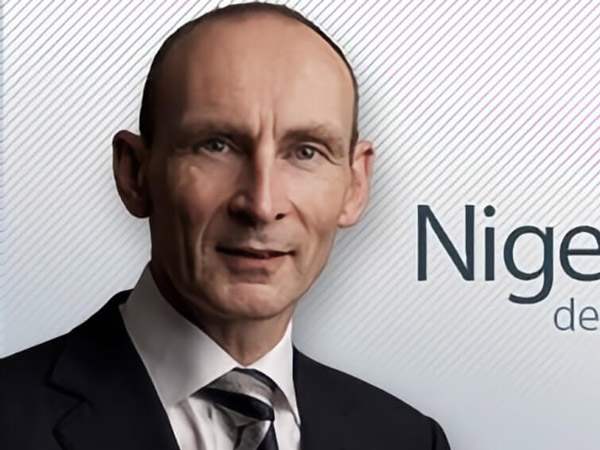Investors need to be extra cautious about the luxury sector, but also be alive to the major emerging opportunities, warns the CEO of one of the world’s largest independent financial advisory and asset management organisations.
The warning from Nigel Green of deVere Group comes as Hugo Boss shares recently plummeted by approximately 9% in German trading this week, highlighting the troubles confronting high-end fashion brands.
The German fashion house has reduced its fiscal 2024 sales outlook to between €4.20 billion ($4.57 billion) and €4.35 billion.
Burberry's woes
Burberry, another major player in the industry, recently replaced its CEO, Jonathan Akeroyd, as it projected a first-half operating loss and suspended its dividend, citing waning demand for luxury goods.
In an effort to attract cautious consumers, luxury brands, including Burberry and Versace, are slashing prices by up to 50% in China, according to reports.
Green says: “The luxury sector is experiencing a significant pullback in consumer spending, driven largely by China’s economic growth slowdown.
“As one of the world's largest markets for luxury goods, China’s economic health profoundly impacts the sector’s overall performance.
Chinese economy
“The Chinese economy is grappling with several challenges, including sluggish GDP growth, declining exports, and a real estate market slump. These factors have collectively dampened consumer confidence and reduced discretionary spending among Chinese consumers, who had previously been avid buyers of high-end products.”
Luxury brands are feeling the pinch as Chinese consumers, particularly with the wealthy and middle class, become more cautious with their spending.
“The phenomenon of ‘luxury shame,’ where individuals are less inclined to flaunt their wealth due to the prevailing economic uncertainty, appears to be getting a major foothold. This cultural shift further exacerbates the challenges faced by luxury brands,” affirms the deVere CEO.
“The slowdown is not limited to fashion; it extends to luxury automobiles, jewellery, and high-end electronics, all of which are seeing reduced sales in the Chinese market.”
Recalibrated strategies
As the ripple effects of China’s economic slowdown extend beyond its borders, global luxury brands are recalibrating their strategies. Many are focusing on strengthening their presence in other markets and enhancing their online retail platforms to mitigate the impact.
“However, the immediate outlook remains challenging, with significant implications for revenue growth and profitability across the sector. Investors, therefore, need to consider these dynamics when evaluating opportunities within the luxury market.”
He continues: “This phenomenon, characterised by a reluctance to flaunt luxury goods, could potentially become a global trend.
“As economic uncertainties persist, we expect consumers worldwide will become more judicious in their luxury spending, favoring brands that embody discreet, timeless elegance. The concept of "hushed luxury" — understated, high-quality products that do not overtly display their brand — is likely to gain traction.
“Brands that have spent decades building a reputation for class and heritage are likely to fare better in this environment. The shift towards more subtle and refined luxury items suggests that consumers are prioritising quality and longevity over ostentation.”
For savvy investors, this evolving market presents significant opportunities.
Discreet luxury
“Focusing on brands that align with the emerging preference for discreet luxury is likely to be a sound strategy. Companies with a strong heritage, commitment to quality, and reputation for understated elegance are well-positioned to thrive in the current climate.
“Understanding these consumer trends and the underlying economic factors is crucial for making informed investment decisions.”
Green concludes: “The luxury market, while currently facing challenges, is not disappearing. Instead, it is evolving. This evolution presents significant opportunities for investors who can identify and capitalise on these shifts. A failure to do so will mean that investors could easily get financially caught off-guard.”--TradeArabia News Service

















